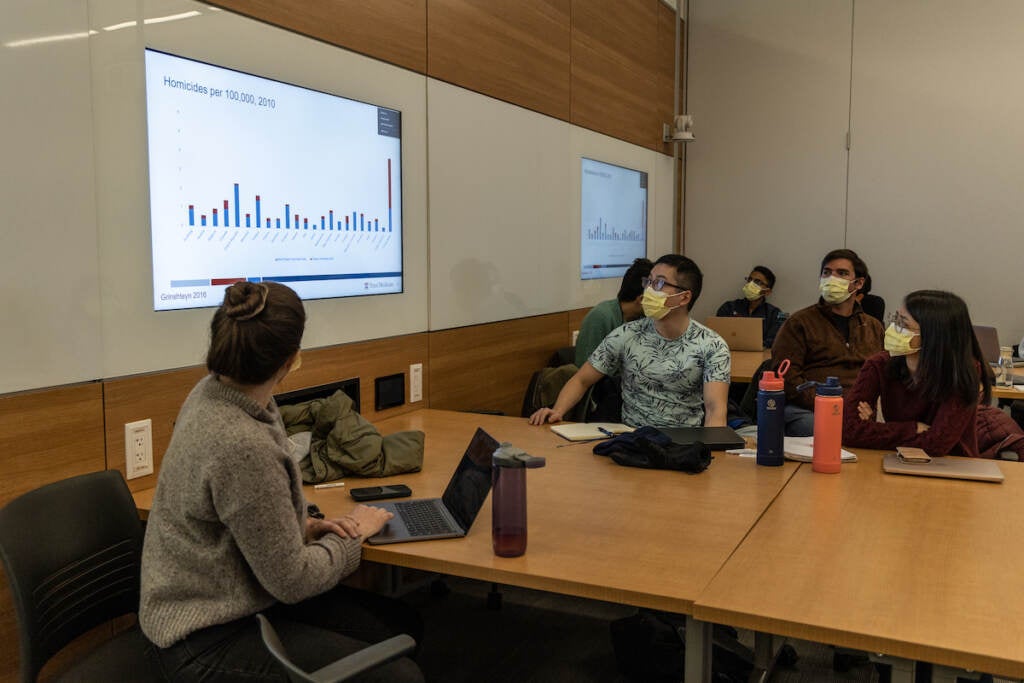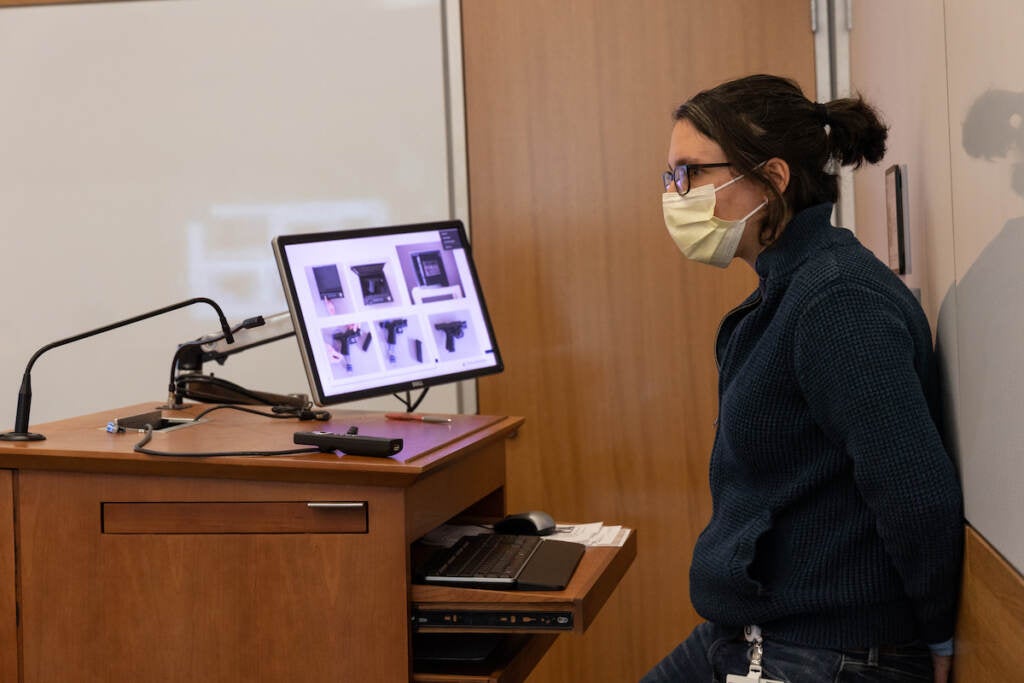UPenn med school prepares students for patient advocacy
Dr. Elinore Kaufman is a trauma surgeon. And in Philadelphia, she sees a lot of patients with gunshot wounds.
“We say firearm injury is a public health problem,” she says. “What does that mean to you, when I say that?”
Kaufman poses the question to a classroom of fourth-year medical students.
“It’s not just a problem between individuals, but it affects communities at large,” one student responds.
“Totally, I agree with that,” Kaufman says. “What else?”
“It’s impacting well-being on a mass scale,” another student answers.
Dr. Elinore Kaufman, trauma surgeon and assistant professor in the Department of Surgery at the Perelman School of Medicine, was a guest lecturer in the Frontiers in Public Health Class on February 7, 2023. (Kimberly Paynter/WHYY)
“Yeah, I think that’s true. It’s to say those things, and to say also that it’s not just those things,” Kaufman says. “It’s a health phenomenon that injures people’s bodies, injures people’s minds, their families, their communities. It affects us all, in a number of different ways.”
On a recent Tuesday, Kaufman served as a guest lecturer and gave students at the University of Pennsylvania’s Perelman School of Medicine a crash course on gun violence — why it happens, who is most at risk, and approaches to prevent it from happening.
 Medical students in the Frontiers in Public Health class learn about instances of gun violence in the U.S. versus other countries. (Kimberly Paynter/WHYY)
Medical students in the Frontiers in Public Health class learn about instances of gun violence in the U.S. versus other countries. (Kimberly Paynter/WHYY)
In the same week, students delved into topics like vaccines, lead poisoning, environmental health, and the opioid crisis.
The lessons are part of a short-term, accelerated course for soon-to-be physicians that bridges the education gap between public health and medical care to teach them how they might use their voices and expertise to help their patients beyond the walls of a hospital or exam room.
No Byline Policy
Editorial Guidelines
Corrections Policy
Source
